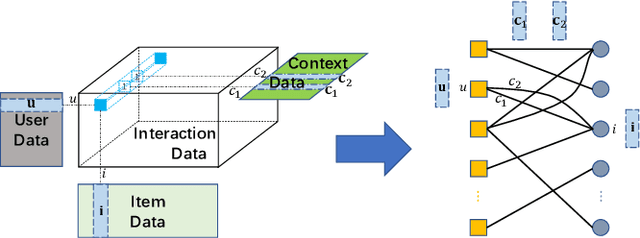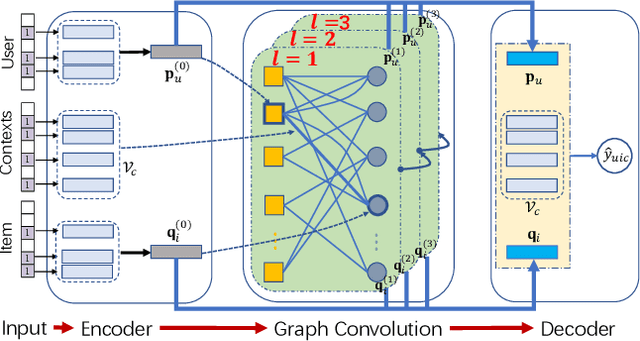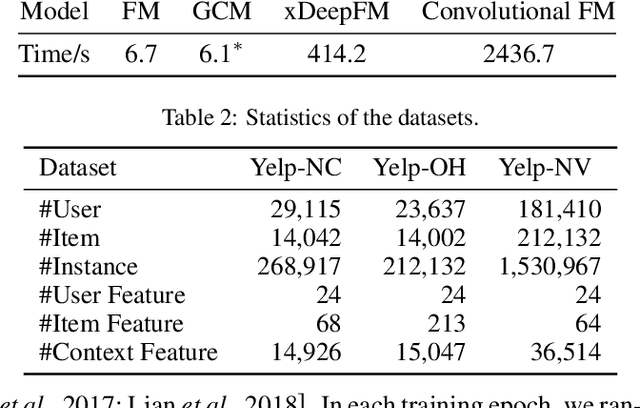Graph Convolution Machine for Context-aware Recommender System
Paper and Code
Jan 30, 2020



The latest advance in recommendation shows that better user and item representations can be learned via performing graph convolutions on the user-item interaction graph. However, such finding is mostly restricted to the collaborative filtering (CF) scenario, where the interaction contexts are not available. In this work, we extend the advantages of graph convolutions to context-aware recommender system (CARS, which represents a generic type of models that can handle various side information). We propose Graph Convolution Machine (GCM), an end-to-end framework that consists of three components: an encoder, graph convolution (GC) layers, and a decoder. The encoder projects users, items, and contexts into embedding vectors, which are passed to the GC layers that refine user and item embeddings with context-aware graph convolutions on user-item graph. The decoder digests the refined embeddings to output the prediction score by considering the interactions among user, item, and context embeddings. We conduct experiments on three real-world datasets from Yelp, validating the effectiveness of GCM and the benefits of performing graph convolutions for CARS.
 Add to Chrome
Add to Chrome Add to Firefox
Add to Firefox Add to Edge
Add to Edge